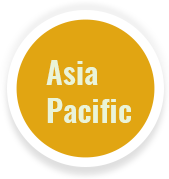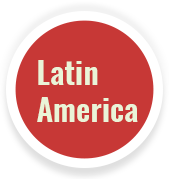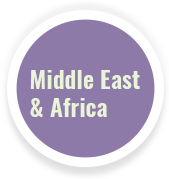What Is HTA? | HTA News & Events | Resource Library | ISPOR Global HTA Governance | Policy Interchange | Training and Development
Health Technology Assessment Events
Health Technology Assessment News
Political interference risks Slovak health technology authority’s independence [Euractiv, July 2024]
The National Institute for Value and Technologies in Healthcare (NIHO) was established as an independent authority to ensure cost-effective reimbursement prices for medicines and medical devices. It reviews medicines and assesses the added value of incoming medicines and therapies. It has no decision-making power but advises the Ministry of Health to ensure money is spent efficiently and on effective treatments. The main section changes the eligibility criteria for the director position, which now limits applications to medical doctors and pharmacists and could potentially exclude those with specialised education or experience in health technology assessment (HTA) structures.
North America

UnitedHealth's unit to launch new drug pricing model next year [Reuters, May 2024]
UnitedHealth said on Monday its unit OptumRx would offer a new pricing model, starting next year, to help manage insurers' costs for drugs.
The world is relying on the United States to get value-based drug pricing right [STAT, May 2024]
With the US becoming increasingly sensitive to the idea that it may be overpaying for medicines, and with value and cost-effectiveness influencing drug pricing policy, all Americans — and, in fact, people around the world — have a stake in making sure that the US gets it right. What does getting it right mean?
New Target Zero Initiative Aims to Help Improve Access to New Drugs [CADTH, April 2024]
Target Zero is a new initiative that aims to improve the time to access for patients in Canada for new drugs that are proven to be effective. The ambitious goal of Target Zero is to achieve zero days between Health Canada’s regulatory approval of a drug and CADTH’s reimbursement recommendation to participating public drug plans.
Europe

Political interference risks Slovak health technology authority’s independence [Euractiv, July 2024]
The National Institute for Value and Technologies in Healthcare (NIHO) was established as an independent authority to ensure cost-effective reimbursement prices for medicines and medical devices. It reviews medicines and assesses the added value of incoming medicines and therapies. It has no decision-making power but advises the Ministry of Health to ensure money is spent efficiently and on effective treatments. The main section changes the eligibility criteria for the director position, which now limits applications to medical doctors and pharmacists and could potentially exclude those with specialised education or experience in health technology assessment (HTA) structures.
No Easy Predictions About the European Union Joint Clinical Assessment [ISPOR, April 2024]
A special spotlight session at ISPOR’s Europe meeting, EU Joint Clinical Assessment: One for All and All for One in November 2023 examined ways that PICOs [population, intervention, comparator, and outcomes] could be consolidated, presenting perspectives from EUnetHTA 21, government, and health technology developer on the proposed process, methodology, and implications for evidence development. The intent of the session was to address the question of how to develop a JCA scoping procedure that has the most impact and brings value to EU patients.
ISPOR submits comments to European Commission on Joint Clinical Assessment Procedural Document [ISPOR, April 2024]
ISPOR submitted comments on behalf of its membership to the European Commission on their procedural document for JCA. ISPOR focused its comments on the timing of good evidence generation and the importance of good stakeholder engagement.
Asia Pacific

Making tender decisions: How does Pharmac allocate its fixed budget? [Pharmac, April 2024]
How does Pharmac decide how to allocate spending? Geraldine MacGibbon explains.
Chair and deputy chair appointments for health technology assessment committees [Australian Department of Health, March 2024]
This document announces the 2024 chair and deputy chair appointments for health technology assessment committees. It includes the appointments for the Pharmaceutical Benefits Advisory Committee (PBAC) and the Medical Services Advisory Committee (MSAC).
Latin America

Supporting health technology assessment in Ecuador and Peru [NICE, May 2024]
In recent years, Ecuador and Peru have placed increasing importance on health technology evaluation. In this case study, we explore NICE International’s collaboration with the Ministry of Health in Ecuador and the General Directorate of Medicines, Supplies and Drugs in Peru. This partnership, supported by the UK Department of Business and Trade, focuses on the ongoing establishment of health technology evaluation.
PAHO supports Guyana on strengthening regulatory and legal capacities for local production and access to health technologies [Pan American Health Organization, April 2024]
The Pan American Health Organization (PAHO), through its Department of Innovation, Access to Medicines and Health Technologies (IMT), conducted a technical cooperation mission on the strengthening of regulatory and legal capacities for local production and access to health technologies in Guyana.
Middle East and Africa

WHO workshop addresses Health Technology Assessment challenges in African countries [World Health Organization, December 2023]
In a landmark event, the World Health Organization (WHO) organized a ‘historical’ workshop on Health Technology Assessment (HTA) for selected member states in the African region. Held in Addis Ababa, Ethiopia, from December 12th to 14th, 2023, with the theme ‘Health Technology Assessment for Priority Setting to Achieve Universal Health Coverage, the workshop aimed at tackling critical issues related to the systematic evaluation of healthcare technology and its role in decision-making processes. The workshop also envisaged helping the establishment and institutionalization of HTA in the health systems of the selected countries, sharing experiences and approaches for capacity building, disseminating relevant guidance documents to promote the use of HTA, and ultimately helping countries to develop their roadmaps for progressing towards implementation of HTA concepts and principles.


